Sebastian Lobentanzer @ Helmholtz Munich
About
The group Accessible Biomedical AI develops AI systems that are not only powerful, but also explainable, reliable, and grounded in real biomedical workflows.
As foundation models grow more complex, it becomes harder to understand how they reason or whether their decisions align with human goals. In biomedicine, this raises a dual challenge: how to use these systems effectively, and how to understand what drives their performance.
We tackle both. We design modular, agentic systems that let researchers interact with AI as collaborators, not black boxes. At the same time, we study model internals, testing how reasoning unfolds and which components are most critical. Our benchmarks focus not just on accuracy, but on why models work. Finally, it is often equally important to know when to not use a large, black-box model, and rely on alternatives instead. To achieve this, we build on a strong network of interdisciplinary collaborators based at Helmholtz Munich and its wider ecosystem. Our PI Sebastian Lobentanzer leads both the Accessible Biomedical AI Research Lab and the Computational Biology Unit at the German Center for Diabetes Research (DZD), and we work closely with Helmholtz AI, ELIXIR Germany, and the Open Targets Platform.
Services
We maintain an ecosystem for knowledge representation and facilitation of connecting knowledge to machine learning and artificial intelligence (https://biocypher.org). We are looking towards extending the framework to information extraction and individual scientific domains (including funded projects in drug target discovery).BioCypher: Data integration in the biomedical context, removing redundancies, increasing FAIRness and facilitating grounding in ontologies for the typical use cases in biology and medicine.
BioChatter: Improve accessibility of biomedical data and knowledge for particular groups of users and create a framework for application of agentic workflows to biomedicine.
BioContext: Provide the community with a registry for agentic tools to apply in biomedical workflows.
Karenina: Support domain experts in curating and scaling benchmarks that are representative of values in the domain.
Training activities will focus on Data integration and agentic applications in the biomedical context, cloud computing and deployment of custom end-user solutions, user interfaces and accessibility
Project Management
Helmholtz Zentrum München
SLOLAB.AI
Ingolstädter Landstraße 1
D-85764 Neuherberg
Contact:

